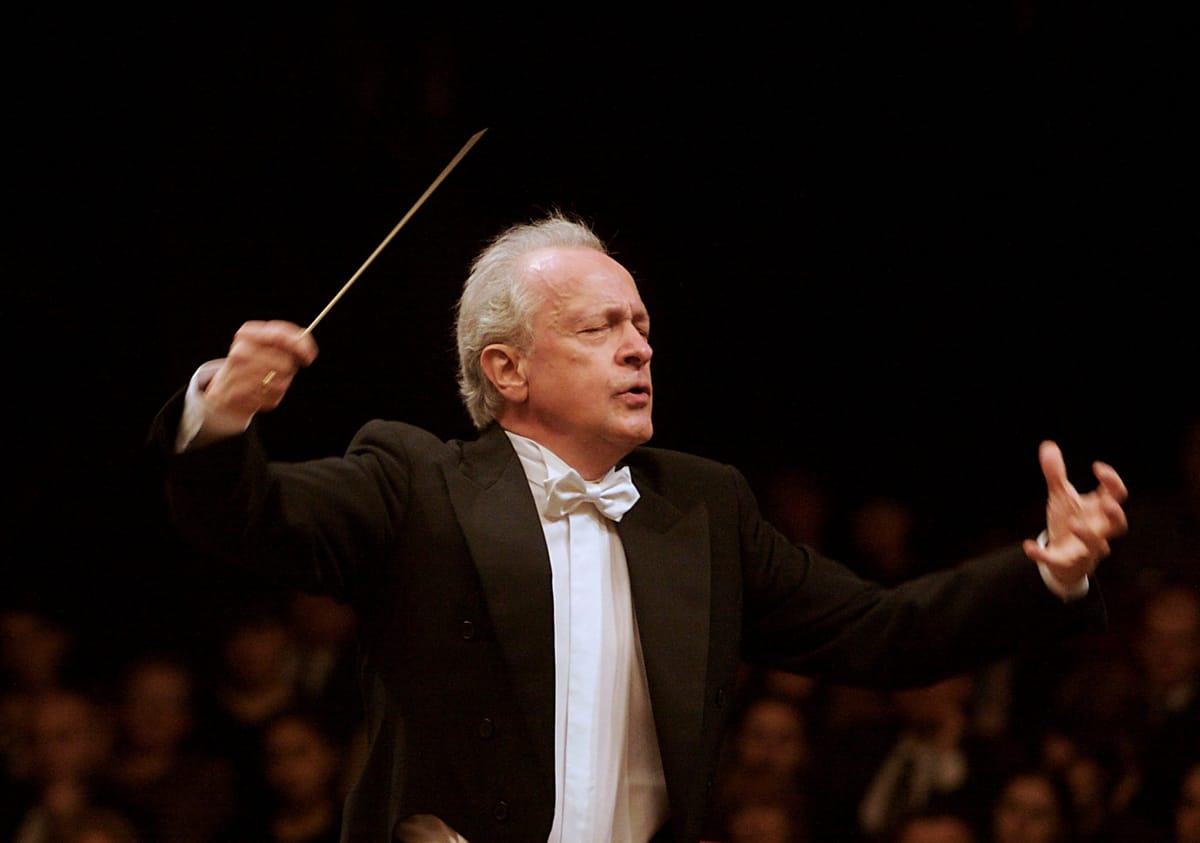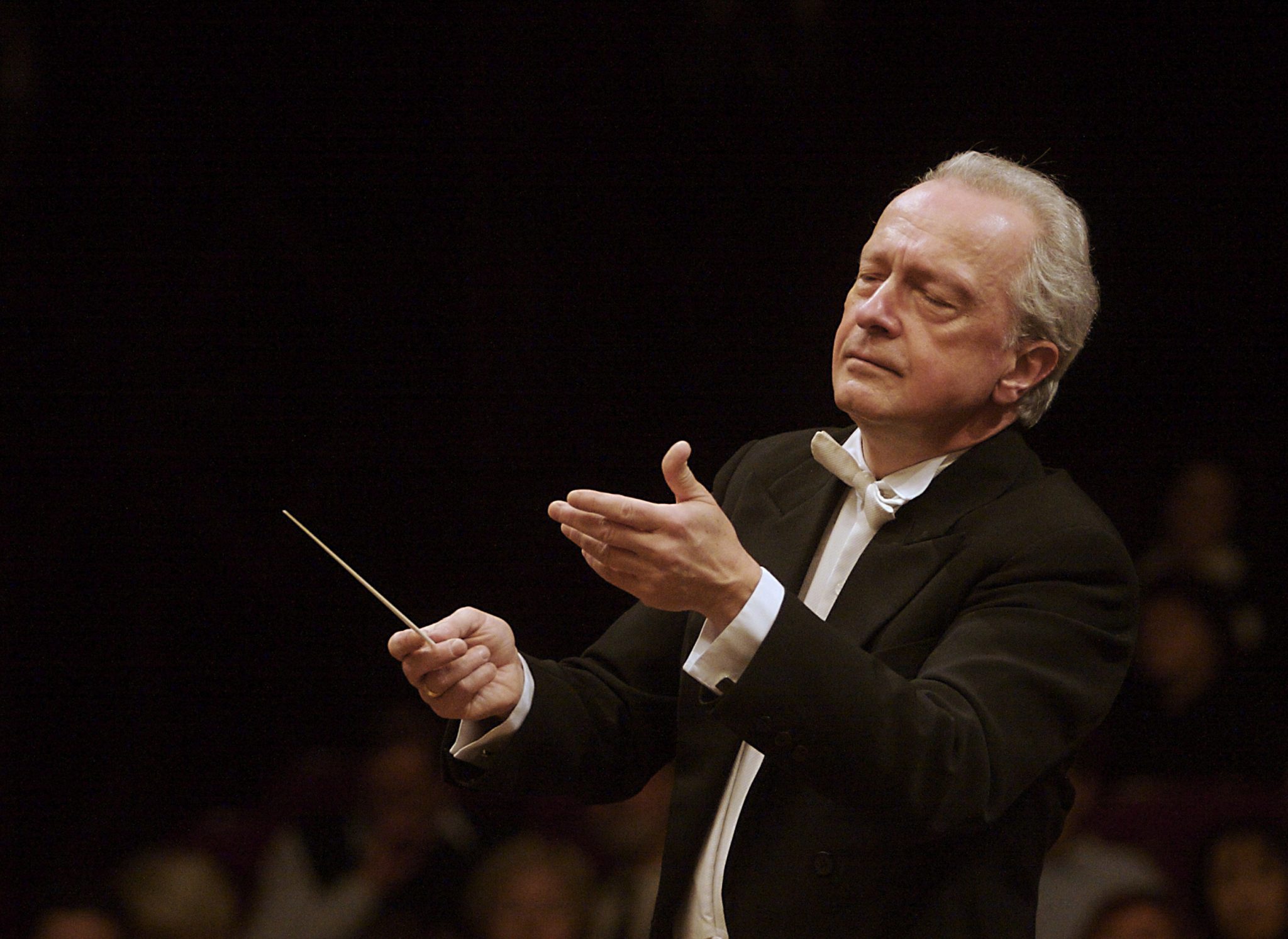The Maestro in our Midst

Prominent Polish conductor Antoni Wit has striven to keep the Polish repertory alive throughout his illustrious career. We take a look at the achievements of the acclaimed conductor, ahead of his performances with the Symphony Orchestra of India. By Beverly Pereira
When the Warsaw Philharmonic Orchestra made its debut at the BBC Proms, in August 2013, the evening was charged with a sense of serendipity and synchronicity. The orchestra performed Witold Lutosławski’s Concerto for Orchestra – incidentally composed for the very same orchestra, albeit from 1950-1954. Fittingly, it was also the farewell concert of the prestigious Pole conductor Antoni Wit, the orchestra’s artistic director of 12 years. A champion of Polish music by both living and late composers, Wit has held many such distinguished positions over the years. The award-winning conductor currently holds the post of music director of the Orquesta Sinfónica de Navarra and honorary conductor of the Krakow Philharmonic Orchestra.
His intense and inventive interpretations of the Polish repertory are well depicted in the many world previews of compositions by Bronisław Kazimierz Przybylski (A Varsovie), Wojciech Kilar (Carillon) and Jacek Domagała (Choralis), and in his notable 2008 recording of Krzysztof Penderecki’s Symphony No. 7 with the Warsaw National Philharmonic Orchestra and Choir that was nominated for a Grammy award.

Learning from the greats
Born in Krakow, Poland, in 1944, he remembers his mother often remarking about his affinity for music when he was as young as six. He was enrolled in music school, where he played the piano and violin, and showed interest in the theory of music and in composition. Wit later studied under the tutelage of renowned Polish conductors Henryk Czyż and Penderecki at the Krakow Academy of Music, before training at the École Normale de Musique in Paris under Pierre Dervaux and later studying composition with Nadia Boulanger between 1967 and 1968.
Surprisingly, the conductor, who would soon become a national legacy and highly regarded international star, went on to study law at the oldest Polish university two years before he began conducting.
“The study was interesting for me, but looking back, it’s a pity that I did not study more scores at that time,” he says.
Besides Czyż, Wit counts the esteemed Polish conductor Witold Rowicki among his early influences in the field of conducting. When Wit took home the top prize in the Herbert von Karajan competition in 1971, Rowicki appointed him as assistant conductor at the Warsaw Philharmonic. Soon after, he took over as artistic director of the Pomeranian Philharmonic between 1974 and 1977, before he assumed the directorial post of the Krakow-based Orchestra and Choir of Polish Radio and Television with which he premiered many important works.
A lasting relationship
However, it was undoubtedly his association with the Polish National Radio Symphony Orchestra in Katowice that took his career to new heights. During his tenure of 17 years, from 1983 to 2000, Wit and the esteemed ensemble performed close to 600 concerts, embarked on international tours and contributed an astonishingly large catalogue of recordings – almost 100 albums – to the Naxos recording label.
Between 1987 and 1992, he was simultaneously engaged with the Orquesta Filarmónica de Gran Canaria as its artistic director. He also taught conducting at the Fryderyk Chopin University of Music in Warsaw from 1998 through 2014. All this, while actively embracing the schedules and demands that his international career called for.
In an interview given in 2000, he said,
“It became my day-to- day work to perform Polish contemporary classical music. Because I perform it much more often than other conductors, I feel strongly for this field but I never treated it as a professional duty. I always thought that it is the mission of Polish radio orchestras to promote Polish works of both living and late composers. This is why this music is so important in what I do.”
Deciphering orchestral personalities
Wit has conducted major orchestras throughout Europe such as the Royal Philharmonic, Dresden Philharmonic, Tonhalle Orchester Zürich, Filarmonica della Scala, the Philharmonia and BBC symphony orchestras, and the Cleveland Orchestra, Orchestre Symphonique de Montréal, Seoul Philharmonic and China Philharmonic Orchestra, among several others outside of Europe. Besides guest conducting at several coveted concert halls, he is also a frequent guest at key music festivals.
Having managed and conducted a host of renowned Polish and international orchestras, one wonders whether Wit has observed any obvious differences in orchestral personalities. “When I was much younger, I was able to see more differences in orchestras, first of all because of the nationalities of their musicians. Now, with globalisation, there are fewer differences. Orchestras are more international, but some of the orchestras still have their own tradition and personality. An example of this would be German, London, Russian and Japanese orchestras,” he explains.
Awards and distinctions
Among his seven Grammy-nominated recordings are Penderecki’s Saint Lucas’ Passion (2004) and Karol Szymanowski’s Stabat Mater (2008). But it was his Naxos recording of Penderecki’s Fonogrammi, Horn Concerto, Partita, The Awakening of Jacob and Anaklasis that won him a Grammy in 2013. Having recorded well over 200 albums, Wit is one of the few artistes worldwide whose albums have sold over five million copies – one of the many distinctions he can be credited with. His recordings with Poland’s renowned orchestras have also been listed as soundtracks to prominent films, including Shutter Island and The Exorcist. The master conductor was also honoured with the Silver Cross of Merit in Poland and had the distinction of being named Chevalier of the French Legion of Honour for his services in the promotion of French music.
Come this year, the maestro says he has plans to record Catalan music. Besides recording in Barcelona in 2018, he is looking forward to the release of a recording of Brahms concertos (violin and double) that he had recorded this year with the DSO Berlin. Wit will also make his India debut, when he plays for the very first time with the Symphony Orchestra of India at the opening of the Spring 2018 season.
“I have two demanding programmes, Wagner and Strauss, and I am looking forward to working with the Symphony Orchestra of India – to compare them with the best orchestras I have done the same or similar programmes with, in the past. I am also extremely happy to do An Alpine Symphony by Strauss in Mumbai, a piece I [have done] more than 30 times with different orchestras – and always with great success.”

Antoni Wit will conduct the Symphony Orchestra of India on 11th February and 16th February at the Jamshed Bhabha Theatre.
This piece was originally published by the National Centre for the Performing Arts, Mumbai, in the January 2018 issue of ON Stage – their monthly arts magazine.





